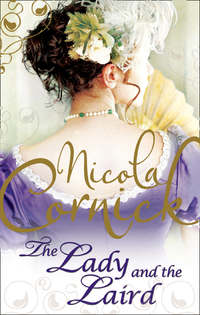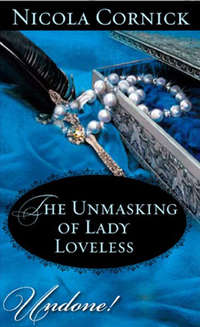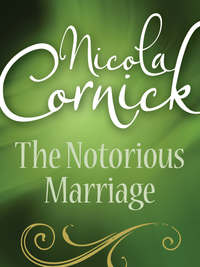
Полная версия
The Woman In The Lake: Can she escape the shadows of the past?
Lord and Lady Gerard had no money. The household lived on promise alone. Lord G was always in debt, or drunk, or both, lurching from one unhappy scandal to the next, from one syphilitic-ridden mistress to another. He and Lady Gerard could not bear one another. It only astonished me that they had thought to marry in the first place.
Don’t misunderstand me. I hated him too. He was forever angry, violent and unhappy as though driven by devils. It was Lord G who had appointed me her ladyship’s maid two years before and she had accepted without a demur. No doubt she was pleased that I was small and dark and plain beside her fair, glowing prettiness. Lord G might hate her but there were many men about Town who did not. Not one of them looked at me when she was by, and that flattered her vanity.
What she did not know was that I might be her maid but I was Lord Gerard’s spy as well. In that sense I was as contemptible as a whore, bought and paid for. I had to please him. My life depended on it.
Early that morning, before he left for Paris, Lord G called me to his study. He was dressed for travelling, pacing the room as though he were anxious to be off which, given the violent row he had had with his wife the previous night, hardly surprised me.
‘Lawrence,’ he said, on seeing me. ‘I have a task for you.’
It was not the first time.
‘Yes, my lord?’ I cast my gaze meekly on the floor the way he liked me to do.
‘The golden gown I gave my wife last night.’ He was standing directly in front of me. I could see his boots, highly polished, against the colourful pattern of the carpet. ‘I want you to destroy it.’
I knew better than to question Lord G, no matter what it was he demanded of me. I knew better than to speculate on why he acted as he did. I kept my mind blank and my voice quiet.
‘Yes, my lord.’
‘You must do as I say. It is imperative.’ He took my chin in his hand and forced my face up so that I met his eyes. They were fierce, as was the frown between his brows. He looked very angry but then I had never known him otherwise.
‘Yes, my lord,’ I repeated.
His hand tightened about my jaw. ‘And no one must know. Do you understand?’ He gave me a little shake. My teeth chattered.
I could not have spoken had I wished, but he must have read my acquiescence in my eyes for he nodded and released me. My chin felt bruised, registering the imprint of his fingers. ‘Good girl.’ He moved away from me; turned back. ‘Your family are all well, I hope?’
I felt a chill. Here was the reminder, the threat, to ram home the need for me to obey. ‘They are all very well, thank you, my lord.’
‘Good.’ His look was sharp, matching his tone. ‘Make sure you keep it that way. We would not wish the authorities to enquire too closely into your father’s business, would we?’
I felt a flash of hatred. ‘No, my lord.’
He nodded. ‘Off you go then, Lawrence. Oh—’ His voice stopped me at the door. ‘Be sure to write to me with the details of how Lady Gerard progresses.’
You would think he was concerned for her welfare but I knew better. He wanted to know who she saw, where she went, what she did. As I said, I was his spy.
A half hour later, the door banged behind him as he left for Paris and a gloomy quiet settled on the house. I crept upstairs to the dressing room, anxious not to disturb my lady, since she was always in a bad mood early in the morning.
The door to her bedroom was ajar. I could hear her snoring and was relieved that she slept. I had imagined that she would lie awake all night in pain, tormented by the terrible argument and the violence that had followed. But perhaps she was sick and exhausted. I should feel more sympathy for her. Yet I did not. Many men enforced their will through their fists. It was a fact of life. Besides, her ladyship provoked her husband with her flirtations. I was her maid so I knew all about the late night trysts and the whispered promises, the dallying in the dark walks at Vauxhall. What did she expect in return? Not many men happily accepted that what was sauce for the goose was also sauce for the gander. It was a matter of pride to them, a matter of reputation.
Pale light from a crack between the curtains glimmered on the material of the golden gown. It lay across the back of one of the chairs where Lord G had thrown it when her ladyship had declined to wear it. All I had to do was creep into the room and take it before she woke. I could destroy it as Lord G had demanded and when – if – she asked me, I would pretend I knew nothing of it.
‘Constance?’
Too late. She had woken. It was her ‘pity me’ voice.
I pushed open the door and went in.
‘Madam?’
‘Call Dr Baird. I need him. At once.’
My heart beat a little faster. I could not help myself. At one time I had imagined myself marrying Dr Baird. Why should I not? He was handsome and clever, and I was an educated woman, suitable to be the wife of a professional man even if I was only a lady’s maid. He would smile on me sometimes. We would exchange a few words. That was all it took for me to fall in love with him and I allowed myself to dream that we might be together.
One night I did more than merely dream. I called by his lodgings to collect some medicine for my lady. I should have sent the footman, of course, but she insisted on discretion and that I should be her messenger. So I went.
He seemed quite different that night. He was in his shirtsleeves, his neck cloth undone, a bottle of red wine on the table by his chair and a fire in the grate. I joined him in a glass and sat with him in the warmth and we talked, and when he kissed me and drew me down to lie with him before the fire I had no thought of resisting. I was full of joy.
But I soon saw that what was, for me, infinitely precious, was to him… well, I know not what. Nothing out of the ordinary, perhaps, a diversion, or even a mistake.
It did not take me long to realise that Dr Baird was even more ambitious than I. He would never again look my way, other than to ask me to pass him a bowl of water with which to tend to Lady Gerard. Knowing that did not stop me loving him, of course, but it did curdle that loving into bitterness.
‘Constance. You’re dreaming.’ Her voice snapped sharp enough for a sick woman. And I automatically dropped a curtsey.
‘Your pardon, my lady.’ I was so adept at being meek.
I went to find a footman to run the errand. When I returned, my lady was reclining on her pillows so that the light accentuated her pallor and the bruising to her eye and cheek. She was a talented artist and could never resist a pose. I turned away in disgust.
‘Constance, fetch me my yellow peignoir.’ She was looking around, fussing. ‘And tidy the room. Not that—’ She spoke sharply as I reached over to grab the golden gown from the back of the chair. ‘Leave it. Fetch me tea. I don’t want toast. I cannot eat.’
‘My lady.’ My mother would have been proud of my obedience. She had told me from the first what an honour it was to have been chosen to wait upon Lady Gerard. Poor Mother. She understood nothing: nothing of the role Lord G had selected for me, nothing of his hold over our family and nothing of the world she inhabited or the price at which it had been bought.
Dr Baird came, hasty as you like. He had eyes for no one but my lady, of course. Even when she had been treated so cruelly she was like a rose, all pink and amber, delicate, precious. He was dazzled. She was helpless. I was so sick with jealousy I could not look at either of them.
I showed the good doctor out after he had made his foolish suggestion to elope with her and she had turned him down. ‘He is smitten with you,’ I said. I wanted to know her feelings even though I knew I should leave well alone.
‘You have too soft a heart,’ she said. ‘What would you have me do? Accept his attentions?’
She was so callous. It mattered nothing to her that she had enchanted him. She took it as her due and she felt nothing in return.
‘He only wanted to help you,’ I said.
‘There is always a price.’ She sounded weary. She took a sip of tea but the pot was cold by now.
‘I’ll call for more.’ I was glad of the distraction, glad to be able to subdue my unruly feelings with practical matters. I rang the bell then noticed that she was looking at the golden gown. I remembered again Lord Gerard’s instructions and my heart leapt with anxiety.
‘I’ll take it away, milady.’ I said. ‘You won’t be wanting to look at it again, I daresay, after what happened.’
She gave me a look. ‘By all means,’ she said haughtily. Then, just as I thought the deed was so easily accomplished: ‘Wrap it up and put it away. I may want to have it altered someday.’
I spoke before I thought. ‘You wouldn’t wear it, surely? Not now!’
She raised her brows and looked down her aristocratic nose at me. ‘Who knows?’ she said. ‘Perhaps I may, one day.’
‘Very well, milady,’ I said. In truth I was vexed almost beyond bearing. There was no knowing when she might want to see it again. She might choose to have it altered tomorrow or she might never ask for it again. It would be typical of her contrariness that if I destroyed it as Lord Gerard had ordered, she would demand to wear it the very next day, and then how would I explain myself?
I was about to take the gown and fold it away whilst I thought about what to do, but she snatched it up and clutched it to her bosom as though it had suddenly become very precious to her. She closed her eyes for a moment and drew in a deep breath. When she opened them again her face was flushed and animated and her eyes bright as stars. It was quite a transformation.
‘Pack my bags, Constance,’ she said. ‘Tomorrow we go to Lydiard.’
I caught my breath. Lydiard Park, one of Lord Gerard’s many estates, was close by my family home in Swindon. In the two years that I had been serving my lady we had never gone there.
I must have been gaping like a simpleton for she gave me a smile. ‘You will be pleased to see your parents again, I imagine.’
Pleased? Pleased to return to Swindon, where my father had sold me into Lord Gerard’s service, pleased to enter once more into that web of deception and criminality? It was not the word that I would have chosen. What pleased me was to be as far from Swindon and the smuggling gangs as I could possibly be.
When I did not reply, Lady Gerard turned away. She was not particularly interested in my emotions, being far more concerned with her own.
‘Dr Baird was correct,’ she said. ‘Fresh country air and a change of scene will be most restorative.’
‘Yes, milady. Do the childen accompany us?’ Lady Gerard looked astonished. ‘Good God, no. They stay here in the nursery.’
I started to run through in my mind all the things that we would need to take. Suddenly there was so much to do. My lady was at her querulous worst, sending me running hither and thither on endless errands, demanding that I pack a dozen gowns and then removing them immediately from the portmanteau in favour of a different style, despatching me to the perfumer, the haberdasher and the bookseller. By evening I was hot and sweaty and exhausted whilst my lady turned the house on its head in her haste to be gone.
‘You will bring the golden gown with us,’ she ordered at one point, thrusting it into my hands. I could not see that she would have opportunity to wear the wretched thing but I had more pressing matters to think of so I folded it small and forced it into an empty corner of the last box. Perhaps when we were in the country she might forget about it and I could destroy it as Lord G had demanded.
Eventually, when her ladyship had driven us all, coachman, maids, footmen and the cook to utter distraction with her orders for the following day, I had the idea of giving her some of the dose Dr Baird had left to alleviate the pain. She had not asked for it, but it was laudanum and it made her sleep.
I dragged myself wearily up the wooden stairs to my room under the eaves. It was stifling hot in there as evening fell over the city and though I opened the tiny window that was too high up to give me a view, no air stirred. First I packed my own small portmanteau and then I sat down at the bare wooden table and drew from the drawer paper, quill and ink.
‘My lord,’ I wrote, ‘I write to acquaint you with Lady Gerard’s business.’ The letter would not reach him for ten days or more, I knew, but he expected me to provide a regular report. ‘This morning she sent for Dr Baird who recommended that she spend some time in the country.’ I paused, biting the end of the quill, trying to decide whether to mention the doctor’s indiscretion, tantamount to a declaration. It would be malicious of me to write of it when Lady Gerard had very properly declined his offer but the sour resentment I felt towards them both had my pen scurrying across the page.
‘The doctor offered Lady Gerard his personal assistance.’ I underlined the last two words. That would be sufficient to have Dr Baird dismissed, which gave me great satisfaction.
‘We travel to Lydiard House in the morning,’ I finished.
I paused again, looking at the candle flame as it burned low. Should I lie or should I omit?
‘I have completed the other commission you required of me,’ I wrote. ‘The gown has been destroyed.’
Chapter 4

Fenella
Present Day
Fen caught the last train from London Paddington to Hungerford. Swindon station would have been much closer but there was a bus replacement service yet again for part of the journey and she did not relish walking through the centre of Reading at midnight for the privilege of being stuck on a coach for another hour.
She took a window seat in the first of the two carriages, only realising when a businessman in a striped shirt wheezed into the seat beside her that she was trapped. She felt a moment of panic, the old feeling of sickness in the pit of her stomach, her pulse racing. Then the man settled back onto the seat with a waft of stale sweat and a contented sigh and she almost laughed aloud. The train was packed and she was safer with this bulwark between her and the crowds.
She could feel the tide of friendship and laughter starting to wear off now, like champagne left open. Perhaps it was because she hadn’t actually had any champagne – knowing she was driving later had been her excuse but the truth was she did not trust herself after a few glasses. It was very easy to lose what small shreds of self she had left.
These days she didn’t go up to London often. She had lived there with Jake for eight years but oddly her old life felt, at the same time, both distant and dangerously near. Her old friends seemed such a long way away that even when she was sitting in the club with them it was as though they were on a far shore and she was an observer not a participant. She had tried so hard, laughed, danced, and chatted as much as she could above the pounding beat of the music. They had all known that something had changed. She had seen it in the puzzled smiles and the slight awkwardness. No one understood why they could not go back to how it had been before. No one mentioned it though, not even Kesia, who had been the person who had invited her in the first place.
‘We’ll go somewhere new,’ she had said when she had called Fen. ‘Somewhere you never went with Jake. Don’t worry,’ she had added, taking Fen’s silence for impending refusal. ‘I know you’re still a bit iffy about going out but we’ll all look after you.’
‘I know you will,’ Fen said. She had injected some warmth into her voice. ‘Thanks. You have all been fabulous.’
‘So you’ll come?’ Kesia sounded eager. ‘Please do, Fen. We miss you. Jessie’s gutted she can’t be there too but Dev is whisking her away somewhere for their anniversary.’
‘She told me,’ Fen said. Jessie was still her best friend, the one constant in a life that had changed almost out of recognition. Her schoolgirl friendship with Kesia had survived too although Kes had been abroad travelling a lot. She was back in London now and keen to meet up with everyone, hence the invitation.
‘You can’t keep hiding away,’ Kesia said now. ‘It’s been two years, Fen. Show that loser he can’t ruin your life.’
Fen appreciated the sentiment even if it was expressed somewhat insensitively. She no longer wanted to scream when people gave their opinion about her relationship with Jake. They had absolutely no idea what she had been through but she had accepted that now. She simply closed her ears to the words and accepted the clumsy kindness in the spirit it was meant.
‘Well…’ she said cautiously.
‘You’ll come!’ Kesia said instantly. ‘Fantastic!’
Of course Fen had agreed. She acknowledged now that refusal had been impossible. Kesia, Laura and the others were amongst her oldest friends and they loved her. They had all stuck together through thick and thin, through college and awful first jobs and slightly less awful second ones. There had been marriages, children, divorces, affairs, all the successes and disasters of life. They had celebrated and commiserated, fixed the problems with wine and conversation like old friends did.
Murder was different, though.
Murder was unfixable.
It had been an accident. Everyone said so, even the police. They had not pressed charges. Only she knew different.
‘Don’t leave me,’ Jake had pleaded. He had been very white. ‘I love you. Why would you walk out on me when we’ve been through so much together?’
She had withstood his emotional blackmail that final time and she had gone, as she should have done years before, changed her name back, changed her appearance, changed her job, her home, her life. Yet the old one dogged her footsteps like a nagging shadow. She understood now that no one ever escaped their past, no matter how hard or fast they ran. You took it with you; it was a part of you.
The train trundled into another station. It was stopping at every town and village between London and Newbury, or so it seemed. Fen glanced over her shoulder through habit but it was so dark outside and so brightly lit in the carriage that she could see nothing. It made her feel unpleasantly vulnerable, a sitting duck, even if there was no one out there, watching for her.
The businessman got off at Reading. Fen watched him heave himself out of the seat and take his briefcase down from the rack overhead. There were dark sweat patches under his arms. She wondered if she was stereotyping him; city worker, a banker perhaps, expense account dinners, high blood pressure. She wondered what people thought when they saw her. Normally she dressed to be invisible. Tonight she had tried to dress the way she had done in the old days, in her favourite sequin skirt and white crop top, nude heels. She had straightened her hair so that the haphazard blonde waves were tamed into a shiny fall. She had even worn make-up. It felt as though she was in disguise. She had changed her appearance so many times over the past two years that she did not really know what she looked like anymore: glasses or lenses, brunette or buttermilk blonde, heels or flats, smart or vintage, real or a total fake.
The train started to move again. She reached into her bag for the book that Laura had given her, Black Sheep by Georgette Heyer, an old favourite from their college days.
Someone sat down beside her and she glanced up.
‘Evening.’ He nodded, smiled. It felt odd, courteous but ridiculously old-fashioned to be greeted formally by a complete stranger who had randomly chosen to sit next to her on a train. She almost smiled because it was so sweet.
‘Hi.’ She looked back down at her book. Then she looked up again. She couldn’t help herself. She might be single by choice but she wasn’t immune. Thirties, dark hair falling across his brow, deep brown eyes, good-looking without being devastating… There was something about him that drew her gaze. The hard line of his cheekbones and jaw made him look uncompromising in a way that might have intimidated her had it not been for his smile, which was dangerously disarming.
He yanked his tie off as though it constricted his breathing and undid his top button, resting his head against the seat back, closing his eyes. Fen realised that she was staring.
She went back to her book. The train was picking up speed. Brief flashes of streetlights, car headlights and isolated houses punctured the darkness outside. The interior of the train was so bright in contrast that it made her head ache. The familiar words on the page blurred before her eyes.
‘Haven’t we met before?’ The man had turned towards her and opened his eyes. They were a very dark hazel rather than brown. Nice.
Fen sighed. As a pick-up line it was extremely lame.
‘No, I don’t think we have,’ she said.
‘Sorry.’ He sounded crestfallen. ‘I know it’s a cliché.’
‘Yes, it is.’ Fen could feel herself warming to him against her will. It was disconcerting. That easy smile was too charming. She felt a surprise tug of attraction and thought that at another time, in another life, she might have liked him very much.
‘I’m too old to indulge in wretchedly poor chat-up lines,’ he said. ‘I really did think that there was a connection between us though.’
‘If you say so.’ Fen buried her nose back in her book. Time passed. She realised she had not read a line, nor turned a page.
‘Is it a good book?’
She wasn’t expecting further conversation. It startled her.
‘Sorry?’
‘I asked if it was a good book.’
‘Um… it’s okay.’ She felt a little off-balance and answered at random. ‘I used to love it when I was younger. But it was written a while ago and it feels a bit dated to me now.’
He tilted his head to read the title and author. ‘Georgette Heyer,’ he said. ‘I’ve never heard of her.’
‘Wow,’ Fen said blankly. She had never met anyone who hadn’t heard of Heyer.
He laughed. ‘Thanks for making me feel illiterate,’ he said dryly.
Fen realised she had been rude. She blushed with embarrassment. Then she met his eyes, saw the amusement there, and realised that probably very little, least of all her bluntness, could dent this man’s confidence. There was a core of steel beneath that easy manner.
‘Is she famous, Georgette Heyer?’ he said. ‘Have any of her books been made into films?’
Fen made an effort. ‘Uh… no, I don’t think so,’ she said. ‘She’s dead. Maybe they did a while ago.’ She smiled despite herself. ‘Though I don’t expect you would have come across them if they had. You don’t look like a fan of Forties and Fifties costume drama.’
‘Don’t judge,’ the man said mildly. ‘You never know.’ He looked cramped in the train seat, folded in, his legs too long for a comfortable fit. She could not look at him properly without turning sideways and that felt too blatant. She did not want to give the impression that she was interested. She wanted to go back to the book for the protection it gave her, but the archaic language seemed unappealing all of a sudden.
‘You’re right, as it happens,’ he said. ‘Thrillers, action films… That’s my sort of thing. Very conventional.’
Fen never read crime or thriller novels. There was enough darkness in real life.
‘Why pick it up if you don’t enjoy it?’ the man asked.
Fen gave up, putting the book away in her bag. ‘It was a present,’ she said.
‘Birthday?’
‘No, just…’ She let the sentence fade. What had it been: an attempt to recreate the past? An apology?
‘Just a gift from a friend,’ she said. ‘We hadn’t met up for a while. A few of us had dinner together.’
‘In London?’ Like her he must know this was the last train.
‘Yes.’ She made an effort and wondered why she was bothering. ‘You?’
‘I’ve been at work.’ He closed his eyes, massaging the back of his neck. ‘Nothing exciting. I’m hoping to be made redundant.’







